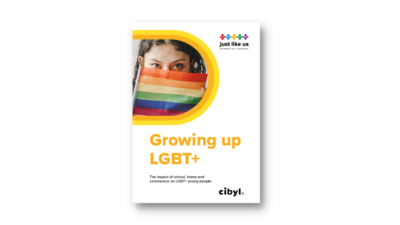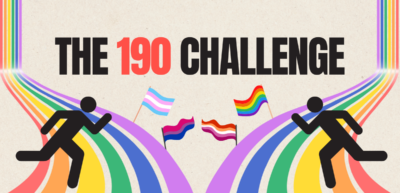
A quarter of LGBT+ young adults go back into the closet after starting work, and many earn less than straight peers
News

A quarter (25%) of LGBT+ young adults have said they went back into the closet when they started work, according to new research by Just Like Us, the LGBT+ young people’s charity.
Of all LGBT+ identities, the most likely to say they went back into the closet at work were gay men (31%), and the least likely to say so were those questioning their sexual orientation or gender identity (20%).
In a survey of 3,695 young people aged 18 to 25, gay men and asexual young adults were also the most likely to say they had been bullied at work (both 23%).
Overall, one in five (19%) of LGBT+ young adults have experienced bullying in the workplace. This is compared to 14% of non-LGBT+ young adults.
Of the LGBT+ young adults surveyed, 14% said they rarely or never felt able to be themselves at work. This figure jumped to 20% for transgender respondents, who were the most likely to say they could not be themselves at work.
Trans young adults are the most likely to be unemployed
Transgender young adults were also the least likely to be employed, with 56% saying they did not have a job. The most likely to be employed were gay men (64%).
Of those who are employed, 38% of LGBT+ young adults said they worked full-time, compared to 44% of non-LGBT+ young adults. Those least likely to work full-time were non-binary (25%) and transgender (29%) young adults.
Salaries varied greatly among LGBT+ identities, but overall LGBT+ young adults made less than their non-LGBT+ counterparts – 24% of LGBT+ young adults make less than £19,999 per year, compared to 16% of non-LGBT+ young adults. Asexual and lesbian young adults were the most likely to make £19,999 or less per year (34% and 33% respectively).
There were significant salary disparities based on both gender and LGBT+ identity
Both LGBT+ identity and gender resulted in a difference to young adults’ salaries.
Straight women were almost twice as likely to have a salary of less than £19,999 (20%), compared to 12% of straight men.
But being LGBT+ worsens the salary gap. A third of LGBT+ women (31%) earned less than £19,999, compared to 25% of non-binary people and 17% of LGBT+ men. Of all LGBT+ identities, asexual people and lesbians were the most likely to earn less than £19,999 (34% and 33% respectively).
However, LGBT+ young adults are keen to find better support in the workplace. 46% are currently or have previously been part of an LGBT+ network at work, and 42% said they would like a mentor to support them at work.
65% of LGBT+ young adults said a company’s commitment to Equality, Diversity and Inclusion was “very important” to them when applying for a role, compared to 59% of non-LGBT+ young adults. Those most likely to see this as a very important factor were lesbian (72%), non-binary (70%) and transgender (67%) young adults.
The data forms part of a new report by Just Like Us (the LGBT+ young people’s charity) called Positive Futures, due to be published on 1 June. Just Like Us’ research was carried out independently by Cibyl in January 2023.
“Young women face a potential gender pay gap very early on in their careers, but LGBT+ women and trans people are hit even harder.”
Amy Ashenden, Interim CEO
The report will look at the experiences of LGBT+ young adults in the UK, covering a range of topics from their wellbeing, home life and time in school to their experiences in the world of work, as well as taking into account intersections like faith, race and disability.
Amy Ashenden, interim CEO of Just Like Us, the LGBT+ young people’s charity, said: “It is extremely concerning that LGBT+ young adults face so many challenges in the workplace that, in 2023, a quarter go back into the closet when starting a job.
“Our research shows young women face a potential gender pay gap very early on in their careers, but LGBT+ women and trans people are hit even harder.
“Our research shows that the treatment of LGBT+ people in British society today is preventing young adults from thriving at work.”
Amy Ashenden, Interim CEO
“These high levels of workplace bullying and what appears to be a LGBT+ pay gap among the youngest in our workforces should be a real cause for concern. Workplaces must do more on LGBT+ inclusion, and LGBT+ young people are eager for their support.
“Our research shows that the treatment of LGBT+ people in British society today is preventing young adults from thriving at work. But the research also shows us that there are ways that workplaces can change this – our Ambassador Programme works with businesses to pair LGBT+ young adults with mentors to do exactly that.
“LGBT+ young people deserve to safely be themselves at school, home and work – there must be no exceptions.”

